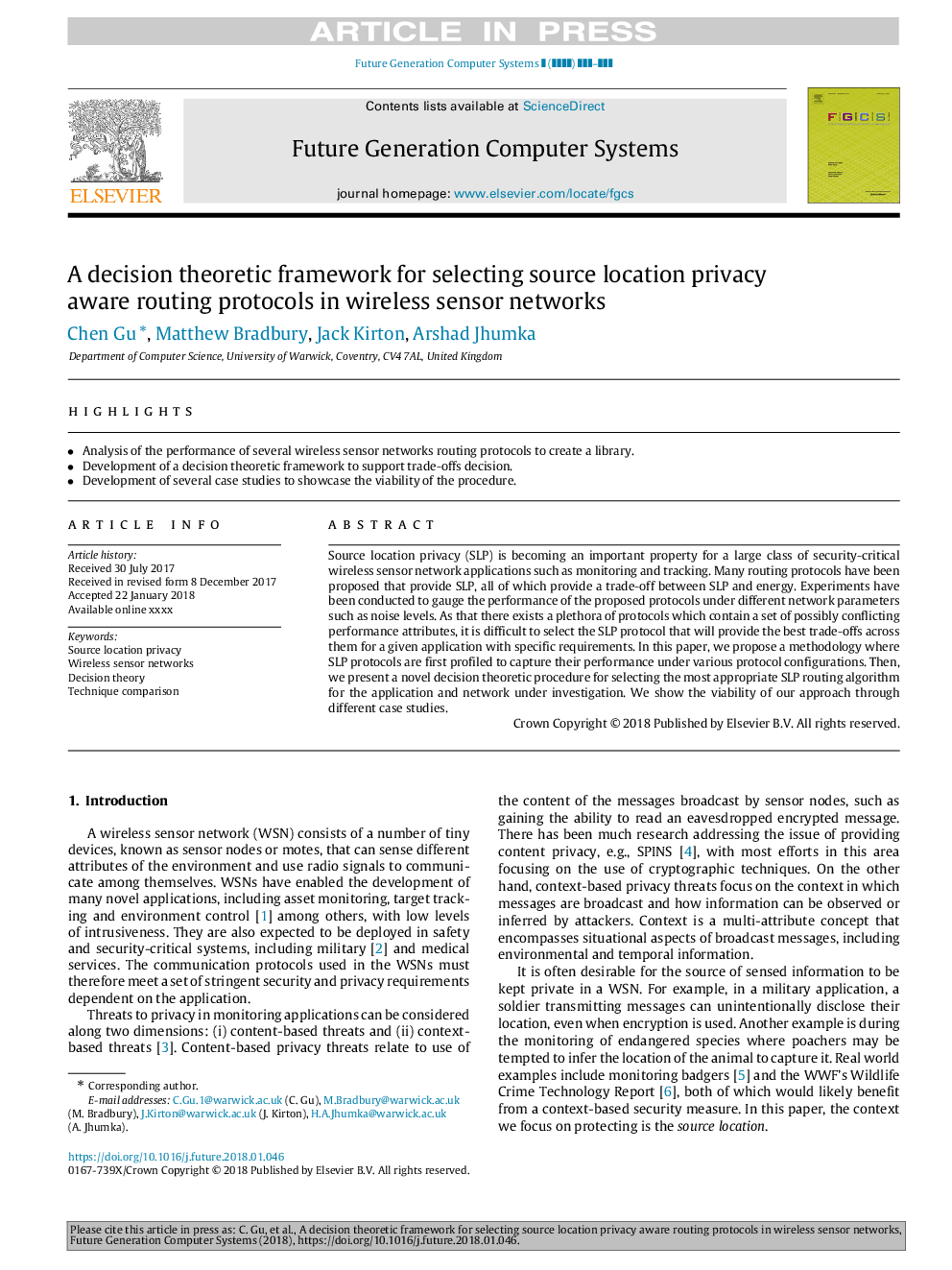| Article ID | Journal | Published Year | Pages | File Type |
|---|---|---|---|---|
| 6872939 | Future Generation Computer Systems | 2018 | 13 Pages |
Abstract
Source location privacy (SLP) is becoming an important property for a large class of security-critical wireless sensor network applications such as monitoring and tracking. Many routing protocols have been proposed that provide SLP, all of which provide a trade-off between SLP and energy. Experiments have been conducted to gauge the performance of the proposed protocols under different network parameters such as noise levels. As that there exists a plethora of protocols which contain a set of possibly conflicting performance attributes, it is difficult to select the SLP protocol that will provide the best trade-offs across them for a given application with specific requirements. In this paper, we propose a methodology where SLP protocols are first profiled to capture their performance under various protocol configurations. Then, we present a novel decision theoretic procedure for selecting the most appropriate SLP routing algorithm for the application and network under investigation. We show the viability of our approach through different case studies.
Related Topics
Physical Sciences and Engineering
Computer Science
Computational Theory and Mathematics
Authors
Chen Gu, Matthew Bradbury, Jack Kirton, Arshad Jhumka,
